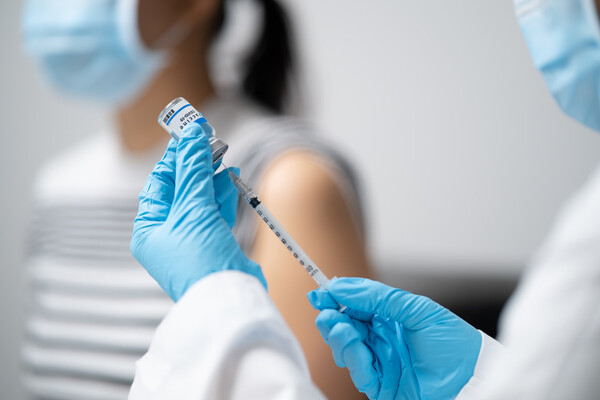
A report by the Korea Health Industry Development Institute (KHIDI) urged the Korean government to revise the tariff system for vaccine raw materials to support the Korean vaccine industry.
KHIDI is a government-funded organization promoting the growth of the Korean health industry.
According to the report released on Aug. 31, countries around the world employ the HS code, a numerical classification system used to categorize traded goods, for the management of international trade transactions.
Among these codes, vaccines are universally classified as "HS 3002.41," and in Korea, all vaccine imports and exports are handled under a singular code, "3002.41-0000."
However, raw materials utilized in vaccine production exhibit significant diversity in terms of their nature and characteristics. Consequently, various HS codes are assigned to each raw material, and they are grouped with goods intended for purposes beyond vaccines. This complexity creates challenges in the application of import and export statistics as well as tariffs on vaccine raw materials, the report said.
According to the KHIDI report, reducing import tariffs on vaccine raw materials, the majority of which are imported, has the potential to lower vaccine manufacturing costs. However, the report also cautioned that altering tax rates on essential raw materials could have both positive and negative consequences for the Korean vaccine and raw material industries, representing a "double-edged sword" scenario.
In line with the government's practice of using elastic tariffs to safeguard and nurture domestic industries, stabilize prices, rectify tax rate disparities, and secure crucial resources, KHIDI has proposed the implementation of elastic tariffs on imported vaccine raw materials. Nonetheless, this would necessitate the establishment of a distinct HS code specifically for vaccine raw materials, it said.
"For raw materials such as semiconductors, secondary batteries, and pesticides, separate HS codes have been created to manage their imports and exports, providing a basis for applying elastic tariffs if necessary, but there is no separate code for vaccine raw materials, which limits import and export management, statistical calculation, and application of elastic tariffs," the KHIDI report said.
To create a distinct code for vaccine raw materials, KHIDI recommended including an item description such as "for vaccine manufacturing" to the 6-digit or less HS code (the 10-digit code used in Korea) as outlined by international agreements, by “benchmarking the example of HS code creation used in other industries."
In addition, applying the bonded factory system to the vaccine industry would reduce import duties on raw materials used to manufacture vaccines, KHIDI said.
The bonded factory system is designed to promote processing trade in which raw materials are imported from foreign countries and products are produced using domestic technology, capital, and labor, and then re-exported.
When importing raw materials used in goods to be exported, it is possible to bring them into a domestic factory without import declaration and payment of customs duties and manufacture them after declaration of use, thereby reducing costs and time.
In the pharmaceutical industry, Samsung Biologics and Celltrion are licensed to operate bonded factories.
KHIDI also encouraged health authorities such as the Ministry of Health and Welfare and the Ministry of Food and Drug Safety to play a more active role in promoting vaccine exports.
Most countries have zero tariffs on vaccines, but some including Brazil, Pakistan, Mexico, and Russia impose tariffs on vaccines up to 10 percent.
"Brazil and Pakistan are major destinations for Korean vaccine makers, and Russia and Mexico are potential importers," the report said.
"We need to consider selecting vaccines as a tariff concession (a concession or allowance of a certain tariff rate between countries that have a tariff agreement) when negotiating agreements with these countries."

